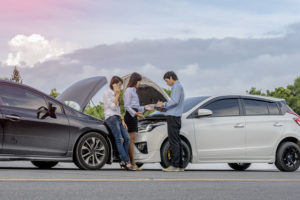When you get into the driver’s seat of your friend’s car, you’re probably not thinking about the risk of getting into a crash. But, unfortunately, with over 400,000 traffic crashes in Florida occurring per year, it’s possible that you could wind up in an accident.

Permissive Use
Some auto insurance policies include a permissive use provision. Permissive use means that the driver gives someone else (who’s not a household member or included by name in the policy) permission to operate their vehicle.
Not all auto insurance policies offer coverage for permissive use. Additionally, some policies that do cover it don’t offer full coverage to permissive users. Higher deductibles may also apply if you file a permissive use auto insurance claim.
Insurance Doesn’t Follow The Driver
There’s a widespread misconception that insurance follows the driver. In truth, typically it follows the car. This means that in the case of an accident, the primary insurance coverage often comes from the policy of the person who lets you borrow their vehicle. As the driver, in this case, your auto insurance would be secondary or supplemental coverage in most cases.
Auto Accident Injuries
If you were injured in a car crash while driving your friend’s car in Florida, your PIP coverage could provide you with up to $10,000 in compensation for medical bills and lost wages. Your PIP coverage applies if you’re driving a friend’s car, just as it does when you’re driving your car.
Florida auto accident laws can be tricky to navigate, and the situation is further complicated if you were driving a borrowed car at the time of the accident. If you need professional legal assistance after a Florida car accident, contact Weldon & Rothman for help from our trusted attorneys.
